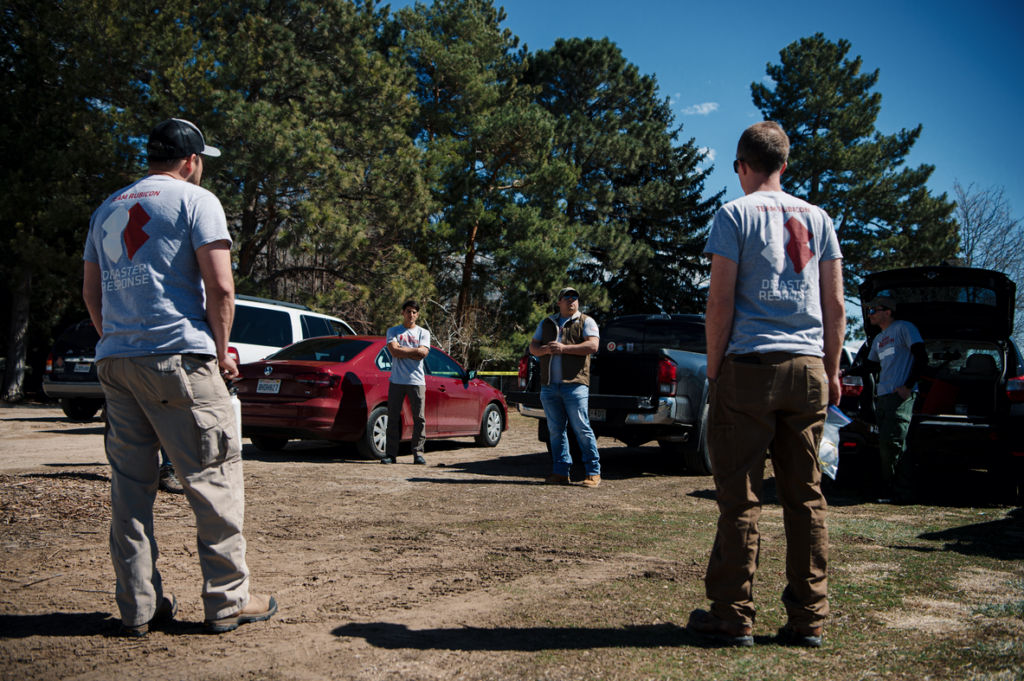I’m not sure about all of you, but sometimes writing is therapeutic. It can be for me. This is a three-part musing cutting through the concepts of humanity (and perhaps ego) against a backdrop of a pandemic.
PART I
These are profound times we find ourselves in. Disaster relief is centered on the concept of humanity. The idea that we are a collective of human beings. The concept of humanity within disaster relief was conceptualized as a throttle on warfare and specifically the suffering it can often produce.
A few days ago, I laid down on the grass with one of my children and looked at the clouds. I can’t tell you the last time I did that. COVID-19 has forced us to slow down. It has forced us to be present with the present. It has forced us to face our own humanity.
For some of us that has included hard conversations with family and friends to take COVID-19 seriously. For some it has included painful conversations of placing funerals on pause until a safer moment prevails. For some is has been drafting wills or making sure family members know where to find their end of life documents.
These are moments not to run from but to look squarely at the eyes of humanity.
Humanity is omnipresent. It is found in the refugee camps of Bangladesh. It is found in every corner of America. It is found at every intersection of commerce. COVID-19 is in the process of finding all of humanity.

PART II
An excerpt from the film Perfect Sense.
“People prepare for the worst, but hope for the best.
They concentrate on the things that are important to them.
All the things beyond fat and flour.
Once we thought of the ice age as something that crept us.
Glaciers slowing spreading.
Temperatures gradually dropping.
But recently, a number of intact mammoths have been discovered with stomachs full of undigested grass.
The cold must have hit them like a blow from a club.
That’s how the darkness descends upon the world.
But first, the shiny moments.
A shared flinching of the brain’s temporal lobe.
A profound appreciation of what it means to be alive.
But most of all, a shared urge to reach out to one another.
To offer…
…warmth
…understanding
…acceptance
…forgiveness
…love.”
In the movie Perfect Sense, the subject of the film is not the global pandemic that steals one’s senses. The pandemic is used as a vehicle to explore emotion and human connectedness. The exploration is raw and jarring at times. The exploration always comes back to what it means to be human.
The incalculable value of an embrace.
The life altering experience of meeting your life partner.
The wonder of seeing new life brought into this world.
The joy of working on a perceived insolvable problem.
The fidelity of serving amidst danger.
The high of knowing time is running out.
PART III
Today we’re faced with the best and worst of humanity. I choose to focus on the former. And ask that all of us “drive a stake through the wheels of injustice” (as Dietrich Bonhoeffer famously wrote) when we see others exploiting humanity at such profound moments as these.
This event has forced us to examine the structures of our societies. Specifically, the elements of societies that are unsustainable and unjust.
Rebecca Solnit describes disasters as experiences that highlight the underlying stressors in an affected society. In our world today, these stressors are the elements of our societies that are neither sustainable nor grounded in an appreciation of humanity.
The loosening of asylum laws in a country founded on immigrants and the genocide of indigenous people. The realization that a pandemic has resulted in clean air for all of us to breathe. The reality that 39% of Americans don’t have access to $400 in the event of an emergency. If nothing else, it is our hope that this pandemic has forced us to squarely look each other and our public policies in the eye.
When the curve flattens and the trappings of “normal” life resume.
We begin to ask ourselves do we need to book that next flight? Perhaps a video call would suffice.
Should we let the asylum seeker in? Perhaps the asylee is just like our grandparents.
Does the individual have $400 to fall back on in the event of an emergency? Perhaps we should advocate for living wages.
In times like these, truth can be suffocated from conversation.
Paul Collier framed it fairly well.
“Although the reformers have truth on their side, truth is just another special interest, and not a particularly powerful one. The villains willing to lie in order to defeat change have an advantage over those constrained by honesty. Reformers do not have it easy”
Be a reformer. Know that it won’t be easy. Let’s fight against COVID-19 and use it to springboard into a better society for all of humanity.



